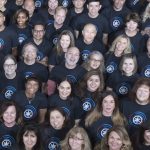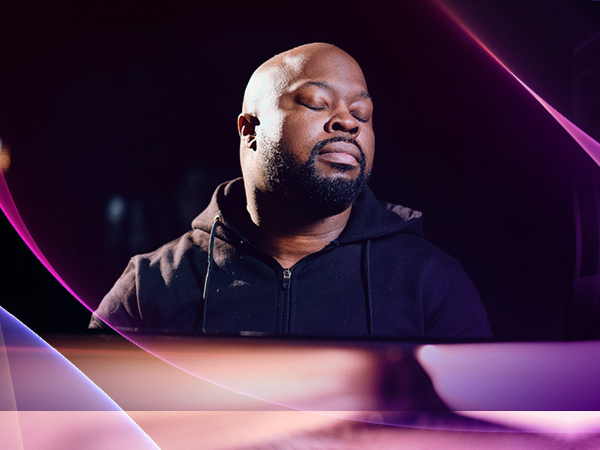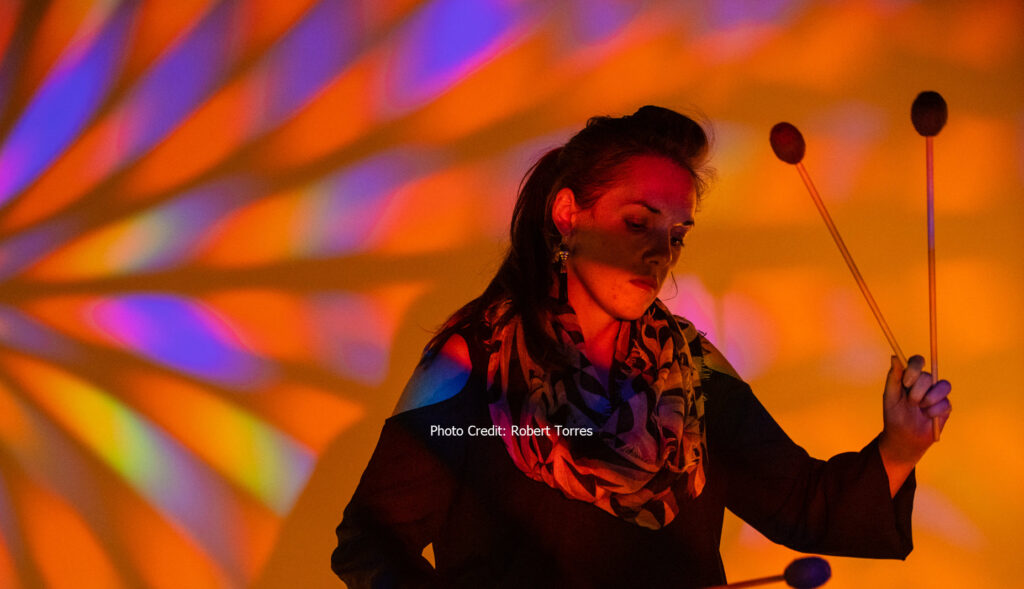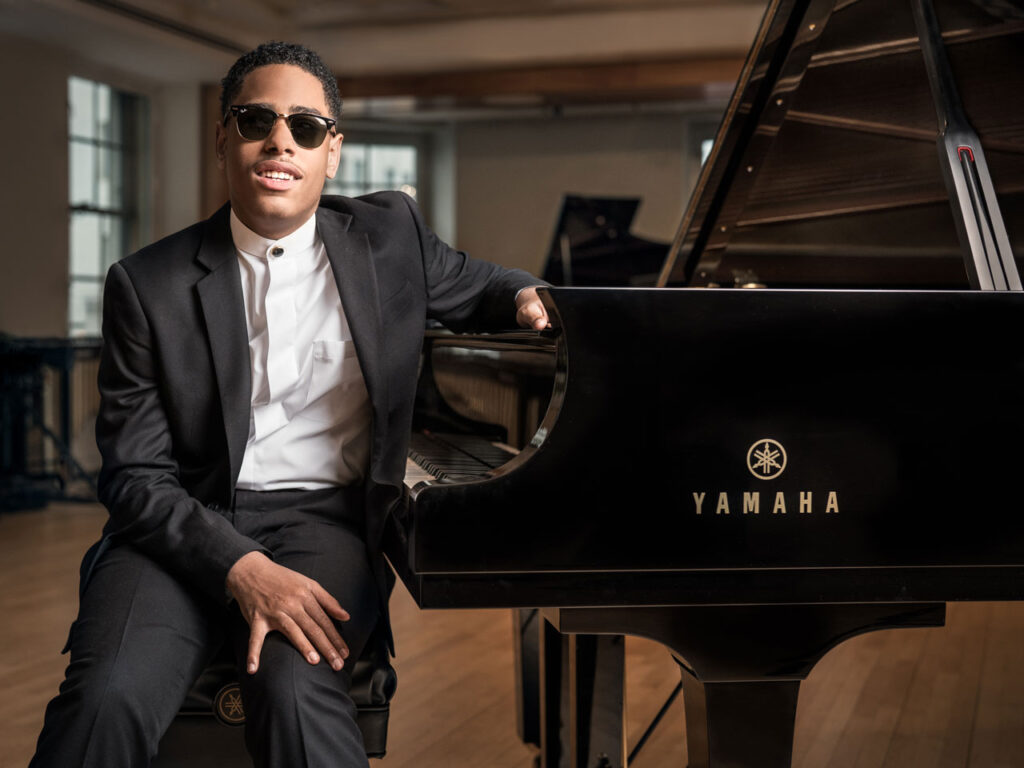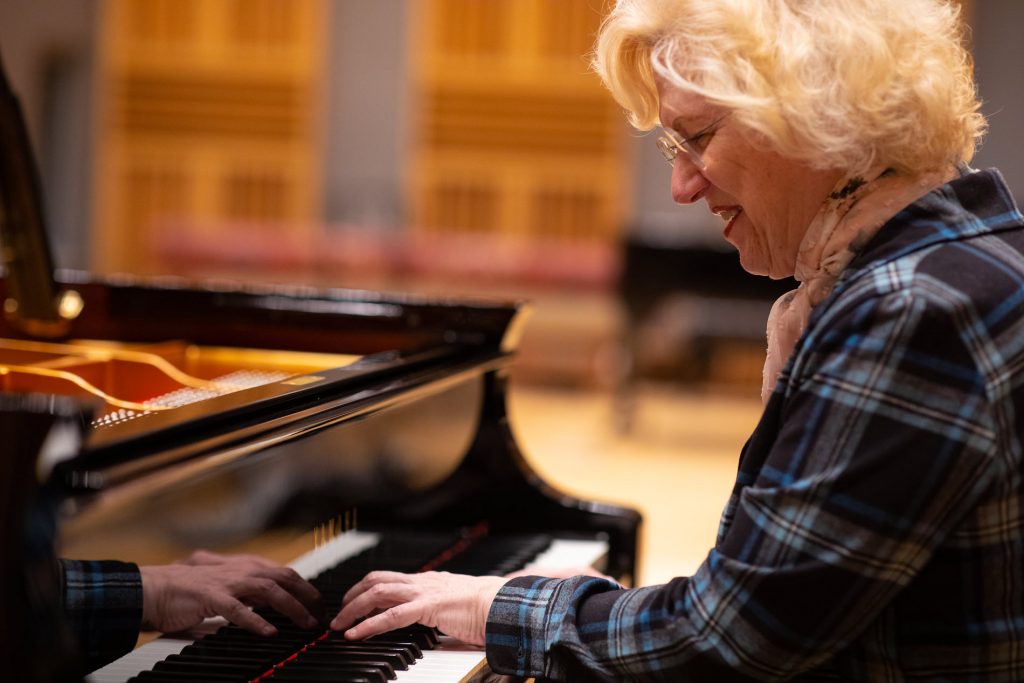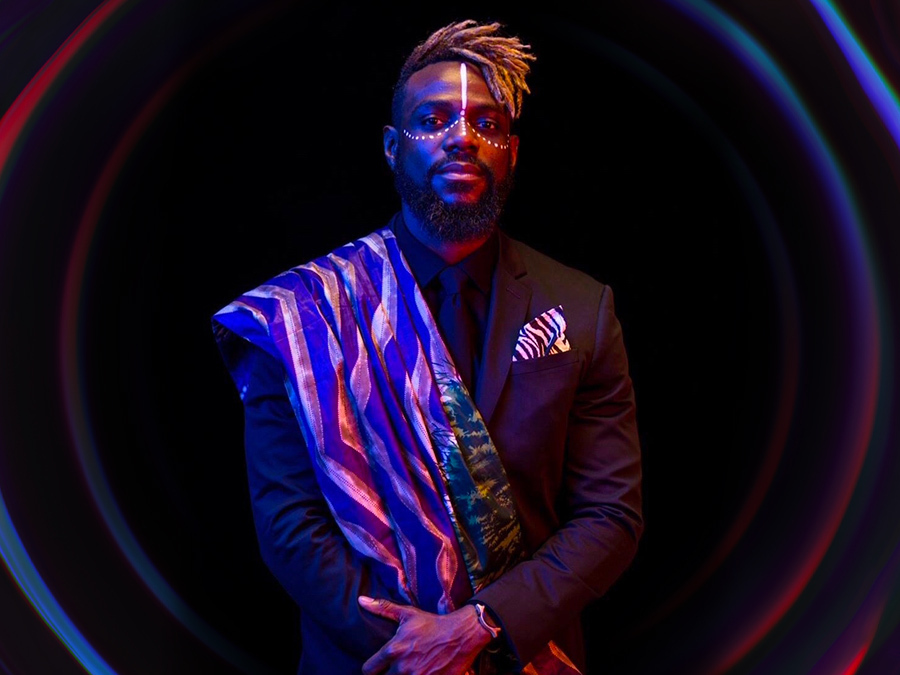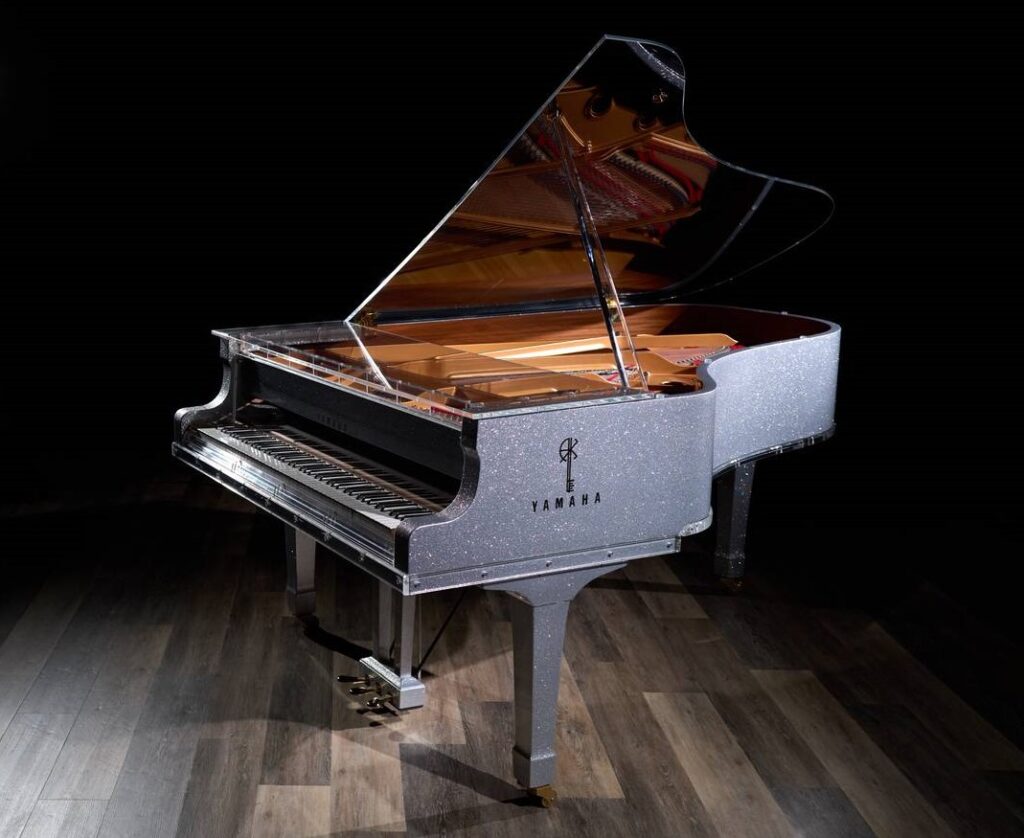Tagged Under:
Empowered Expression: An Interview with Adam Tendler
Yamaha Artist Adam Tendler shares his career journey and coming out story for Pride Month.
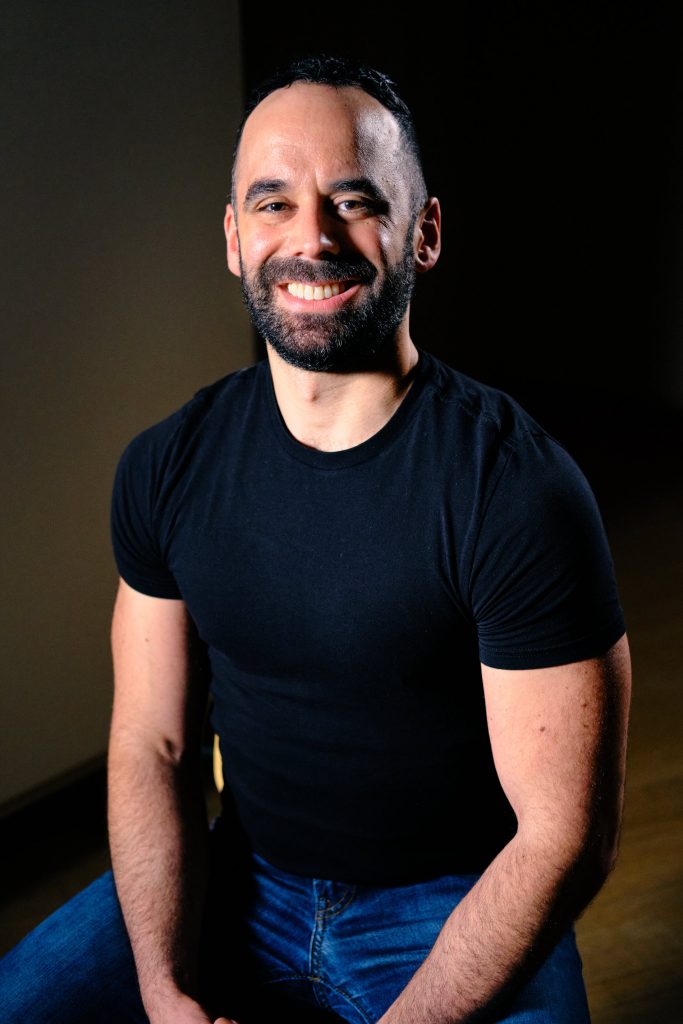
Adam Tendler has always made it a point to challenge himself, beginning with his first attempts at learning classical piano as an adolescent, and continuing in his current ambitious goals as an adult. He has become nationally renowned for his willingness to give performances in thought-provoking locations such as cemeteries, chapels and public parks — as well as for his drive to bring the genre of contemporary classical music to the masses and further its acceptance in the mainstream. Launching his career by embarking on a courageous mission to perform in all 50 states (a personal and professional adventure he details in his book 88 by 50), Tendler now collaborates with the top names in modern classical, as well as with artists outside the genre, to introduce new first-time listeners to this complex form of music.
Adam recently spoke with Yamaha about how he continues to challenge himself to this day — both professionally as well as personally — to express his emotions through music.
Unusual and Unique Spaces
“I think I’ve always been drawn to presenting programs in unusual or unique spaces,” Adam says. “Sometimes it has been because of necessity, just because that’s what I had to work with at that time, and we could get a piano there.
“Playing Liszt in the Green-Wood cemetery catacombs (in Brooklyn, New York) was a huge risk and a huge experiment because it was a very long program, a very intense program, and we truly were in catacombs surrounded by souls — we were amongst the dead, and it was a very spiritual program,” he recalls.
“And to the very last second, it was unknown how this was going to work – if this was going work. But I really wanted to see how that music would activate in that space. I had this faith that it was going to be really cool and really powerful, and that combination of really cool and really powerful has guided me into playing different programs in unusual spaces, whether it’s in the catacombs or in nightclubs, or in galleries. When you take music out of the standard concert hall and put it in new spaces, that music can spark and activate in a different way, and it can reach a broader spectrum of listeners, which is always a goal of mine too.”
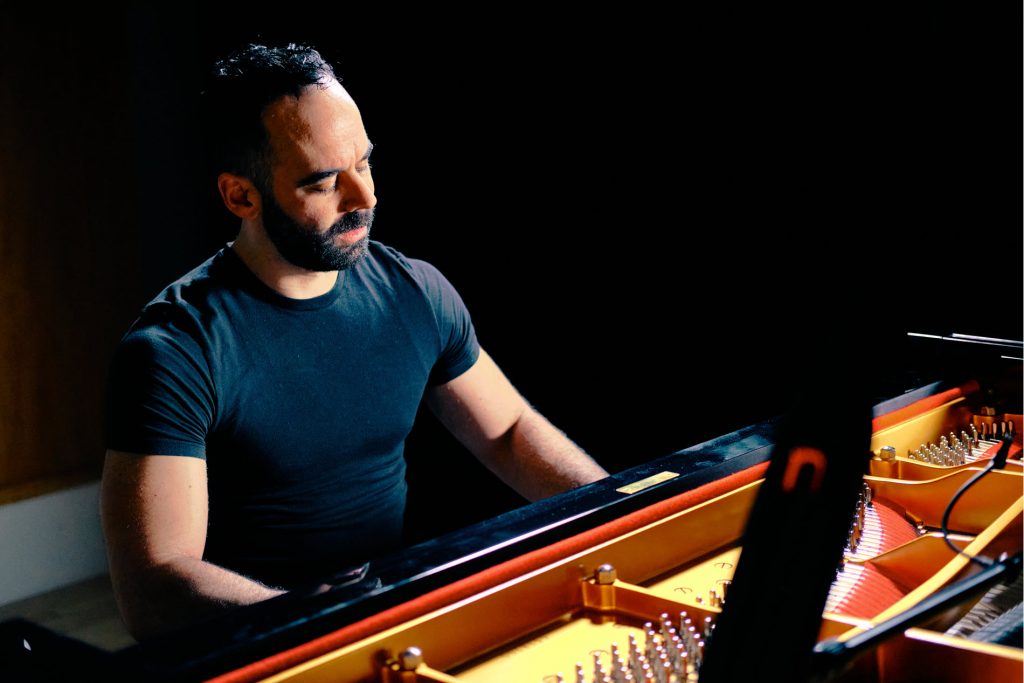
88 by 50 Tour
The 88 by 50 Tour was an ambitious project that Adam embarked on right after graduating from college. The goal: Play a professional piano concert in all 50 states. It took Adam almost a year to complete.
“In essence, [it was a way] to try to teach myself how to perform,” he says, reflecting back on the origins of the undertaking. “I really felt like the stage was the classroom I needed. If I wanted to be a performer, I needed to be on stage a lot more because by the time I left music school, I had become kind of a nervous wreck as a performer.
“I wanted as much time on stage as possible,” Tendler continues. “I wanted to put myself in unusual places. I wanted to play modern music, and finally, there was this element of, I am not comfortable with who I am. Maybe by the end of this gauntlet of 50 states, I’ll have enough courage to come out.
“Everyone I knew was preparing me to be okay with it not working. Everyone said, ‘You know, if you just do 10, even that’s okay,’” he remembers. “I was like, I really want to do this, but I had no planning. I earned all my own money, and worked construction and taught piano lessons, and saved it all. It was very much a grassroots situation. As I was on the road, I would book more and more shows, finding places through search engines and calling them and seeing who would say yes.
“But there was a trajectory of coming out [too]. From the beginning, [when] a presenter said to me, ‘You don’t have a closet, you have a vault,’ to midway through the tour, falling in love with somebody, and having this relationship.”
By the time he got to state 50, it had been a year, and to Tendler’s way of thinking, he still didn’t really have a career. “I didn’t know if I had a national presence and I still was in the closet,” he remembers. “It was this interesting thing: I felt profoundly different, and yet I realized at the end of this project, all I really had was myself.
“It was like, well, I need to start to be honest about who I am. I found myself as a performer, and in a way, had come out as a performer. … I felt like I [could finally] say to people, now I am a pianist. That was the last thing I needed to do: to learn to be comfortable with my sexual identity. Even to this day, I struggle with that notion. Is it such a big deal, who I love? Is it anyone’s business? But at the same time, it was such a point of agony to have to hide such a powerful and deep part of myself, a part that fuels my music-making.”
A Fortress and a Vessel
Coming from a musical family of two generations of pianists, Adam received instruction at an early age, but it wasn’t until his high school years that he started to devote more time to the craft — often as an escape from the pain of being bullied by classmates.
“I was six and a half when I first started playing piano,” Tendler says. “In my hometown in Vermont there were two piano teachers. One was my grandfather and the other was his competitor. My mother, in the boldest move I could ever imagine, put me with his competitor, and I don’t know if he ever forgave her!”
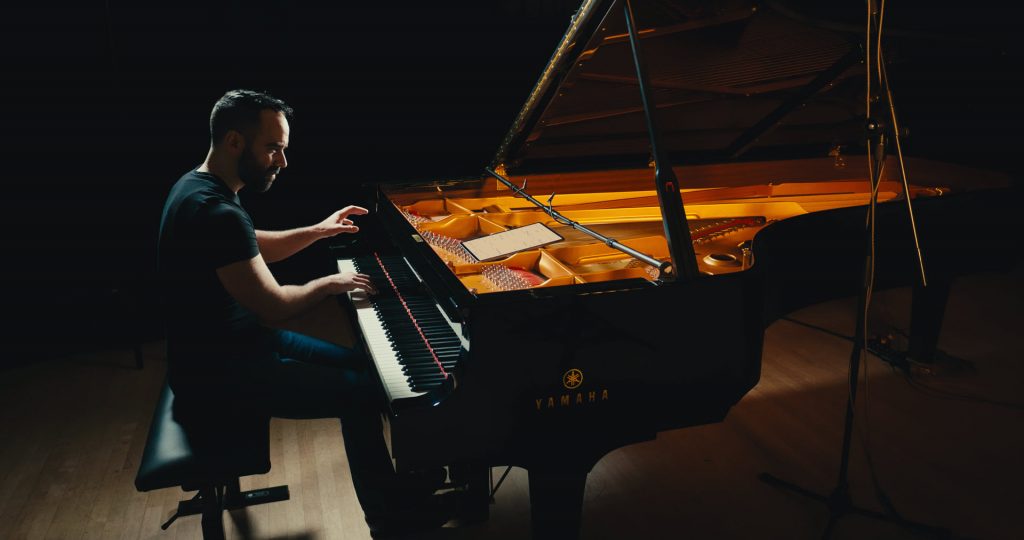
“[It was when] I started to discover music by Chopin and Rachmaninoff [in high school], that something sort of clicked with me, and this does actually have to do with being gay. I was bullied a lot, growing up, for my voice and just how I acted. I was ‘accused,’ for lack of a better word, of being gay before I even really knew what that meant. I had no clue what everyone was talking about,” he recalls with a laugh, “but I knew they were making fun of me and teasing me about it.”
Fortunately, Tendler began to find that he could express himself at the piano in a way that was safe. “Somehow playing the piano created a fortress around me,” he says. “It was a fortress that could protect me, but it was also a vessel in which I could escape from being bullied.”
Musical Influences
The background of modern American classical music comprises a range of people from different backgrounds, including composers such as Aaron Copland and John Cage, who hid their sexual identities as it was not an accepted norm of their era. The dissonant music of these composers reflected how Adam felt during his adolescent years. He includes their work in many of his performances today
“With a composer like Copeland or Cage, or Robert Palmers,” Tendler explains, “I can resonate with them on a personal level, because of their sexual identity, even if they didn’t make that part of their identity the forefront of their music at all. The truth of the matter is that, [for] most of my career, neither did I. When I did the 50-state tour, I was still in the closet. I thought the tour was going to solve that for me and somehow make me so courageous and brave that I was going to come out, but I was battling that stuff all the time.
“I love the raw dissonant energy of modern music,” he says. “The decision to write dissonance — to commit that to the page and to commit it to a performer to have to play notes that grind against each other — was something I admired. I felt like I was dissonant to my environment; I felt like I wasn’t belonging in my environment. I think that became a big part of why I started to gravitate toward that music, because it felt like the only way in which I could actually resist and rebel.
Advice for Young LGBTQ+
“I think I would tell that young person to not wait,” says Tendler. “They don’t have to wait until they’re in their mid- to late twenties, like I did, to embrace and be honest about who they are. The personal risks I thought I was facing, I had built them up in my head. The truth is that, on the other side of that honesty is a community and a family of other queer people who are so happy for you, for any young person who’s coming out.
“There is a whole culture, world and community rich with amazing people who are there to support them, [so they should] avoid underestimating the people around them. I really underestimated the people around me. [I felt] that I was going to be rejected and cast off, and it was just not the case. I was completely embraced.
“It might not be true for everybody, but the honesty, integrity, bravery and courage to come out and be honest about who they are will be admired by the people around them.”
Learn more about Adam Tendler at www.adamtendler.com.









